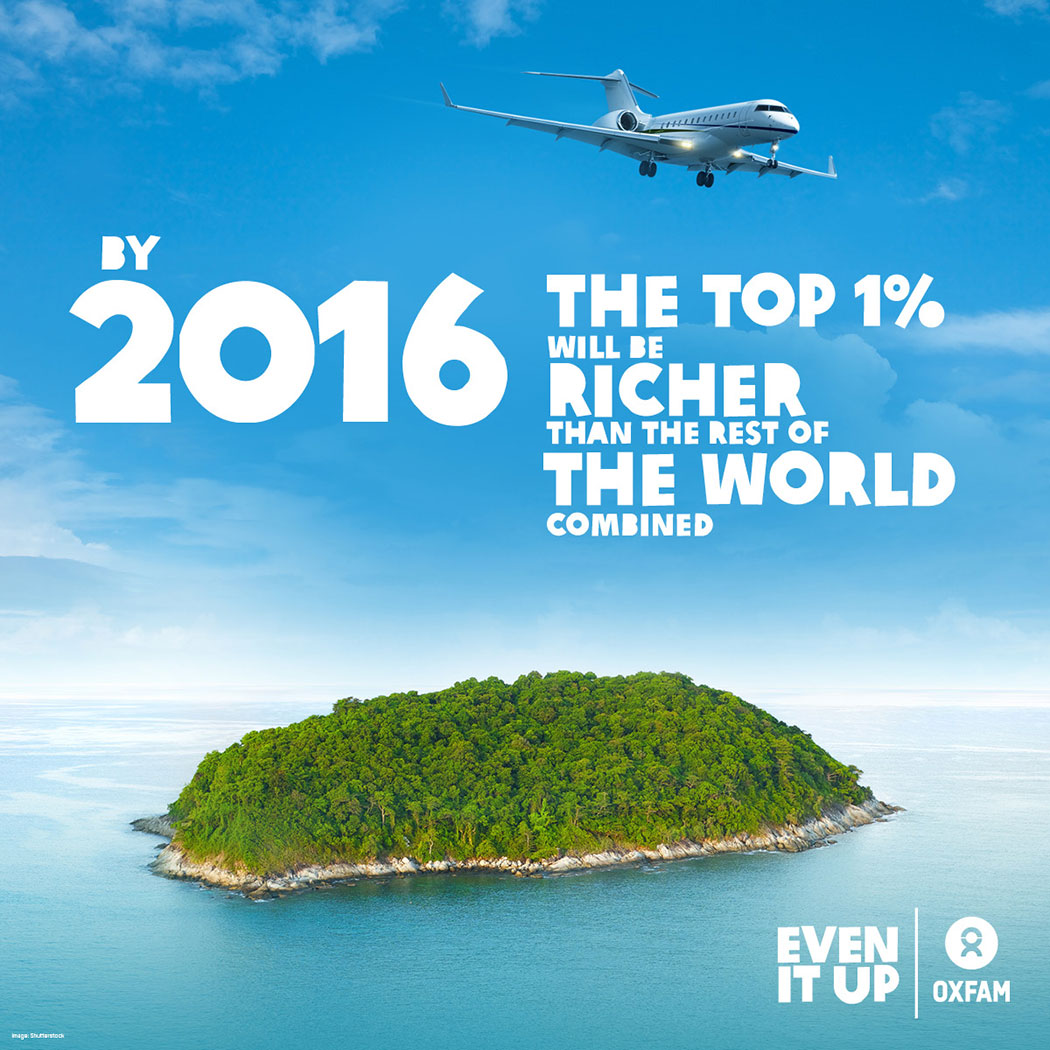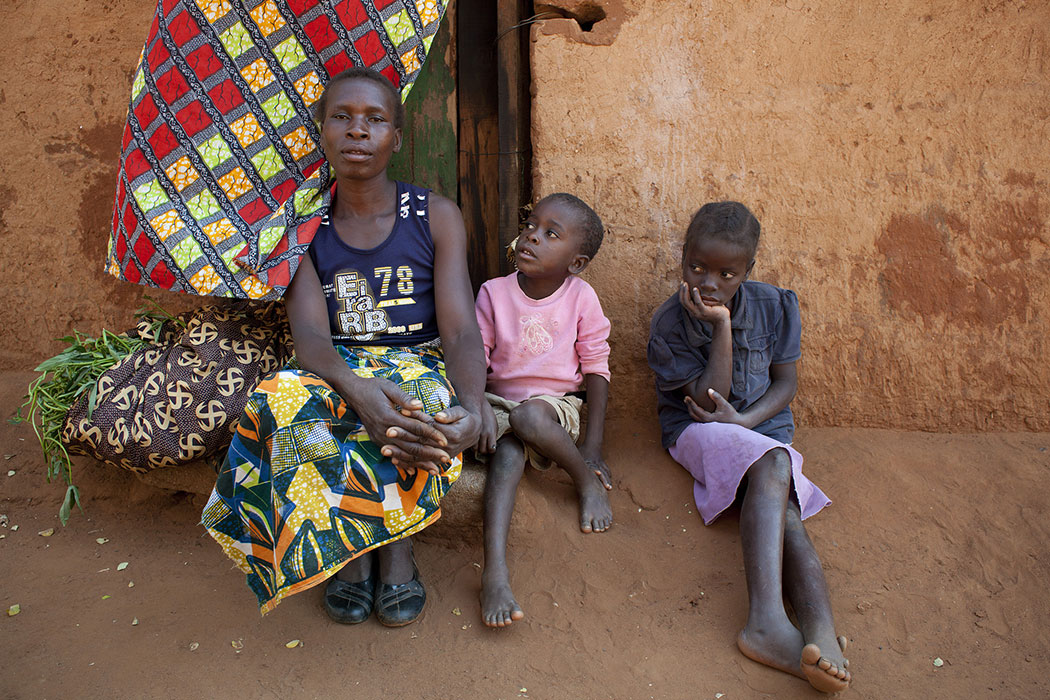- 3 min read
- Published: 19th January 2015
By 2016 the top 1% will be richer than the rest of the world combined
High up in the Alps, world leaders will later this week make their annual pilgrimage to the Swiss resort of Davos for the World Economic Forum annual meeting.
The threat posed by growing inequality – one acknowledged by a diversity of attendees – will again be one of the main talking points at the invite-only event where politicians rub shoulders with business leaders, social entrepreneurs, technology innovator, philanthropists, media and NGOs.
The summit last year identified economic inequality as a major risk to human progress, while Oxfam reported that just 85 people owned as much wealth as the poorest 50 per cent – or 3.5 billion people.
Our new research paper published today shows that shows inequality is getting even worse – the exclusive club has now shrunk to just 80 people, a dramatic fall from 388 people in 2010.

Other key findings from the report – entitled Wealth: Having it all and wanting more – include:
- The richest 1 per cent have seen their share of global wealth increase from 44 per cent in 2009 to 48 per cent in 2014
- At this rate the richest 1% will own more than 50 per cent of global wealth in 2016.
- Almost all of the remaining 52% of global wealth is owned by the richest 20%.
- This leaves just 5.5% of the global wealth for the remaining 80% of people in the world
- The wealth of the richest 80 people doubled in cash terms between 2009-14.
- More than a third of the 1,645 billionaires listed by Forbes inherited some or all of their riches.
This explosion in inequality is holding back the fight against global poverty at a time when 1 in 9 people do not have enough to eat and more than a billion people still live on less than $1.25 (€1.07/82p)-a-day.
Inequality is not inevitable – it is the result of policy choices. There are solutions, ones we will be highlighting at the Davos meeting, which Oxfam International Executive Director Winnie Byanyima will co-chair.

Above: A twice-weekly vegetable market in the town of Bara Gaon, India. Inequality is rising at a time when 1 in 9 people do not have enough to eat and more than a billion people still live on less than $1.25 (€1.07/82p)-a-day. Photo: Tom Pietrasik / Oxfam
We propose a seven-point plan to tackle inequality:
- Clamp down on tax dodging by corporations and rich individuals
- Invest in universal, free public services such as health and education
- Share the tax burden fairly, shifting taxation from labour and consumption towards capital and wealth
- Introduce minimum wages and move towards a living wage for all workers
- Introduce equal pay legislation and promote economic policies to give women a fair deal
- Ensure adequate safety-nets for the poorest, including a minimum income guarantee
- Agree a global goal to tackle inequality.

Above: Zambia is one of the world’s fastest-growing economies yet Barbara Chinyeu is living in poverty, like three-quarters of the population. While Barbara struggles to grow vegetables to support her family and walks four hours every day just to collect water, multinational mining companies make huge amounts of money in her country. These giant corporations use international tax rules to avoid paying their fair share, meaning that families like Barbara’s lose out. "We are better off if we are all at the same level... If we were all equal, we could all have control of our own affairs." Photo: Abbie Trayler-Smith / Oxfam
Imagine the impact this could have. Cleaning up the toxic global tax system, to take one example, would give governments all over the world the vital revenues they have been deprived to invest in public services like health and education that can both help to fight poverty and reduce inequality.
For example, the EU could receive an annual boost of €120/£100 billion in public money if Europe clamped down on tax dodging. €120/£100 billion is almost twice the annual global aid budget and this much cash could save the lives of 350,000 children under the age of five every year.
2015 presents a historic opportunity for world leaders to set a roadmap to eradicate extreme poverty and improve prospects for all citizens with the clock ticking for major decisions on the new UN development goals later this year.
If we get it right, this generation can solve one of the major global challenges of our time and help people escape the stranglehold which keeps them in poverty.
